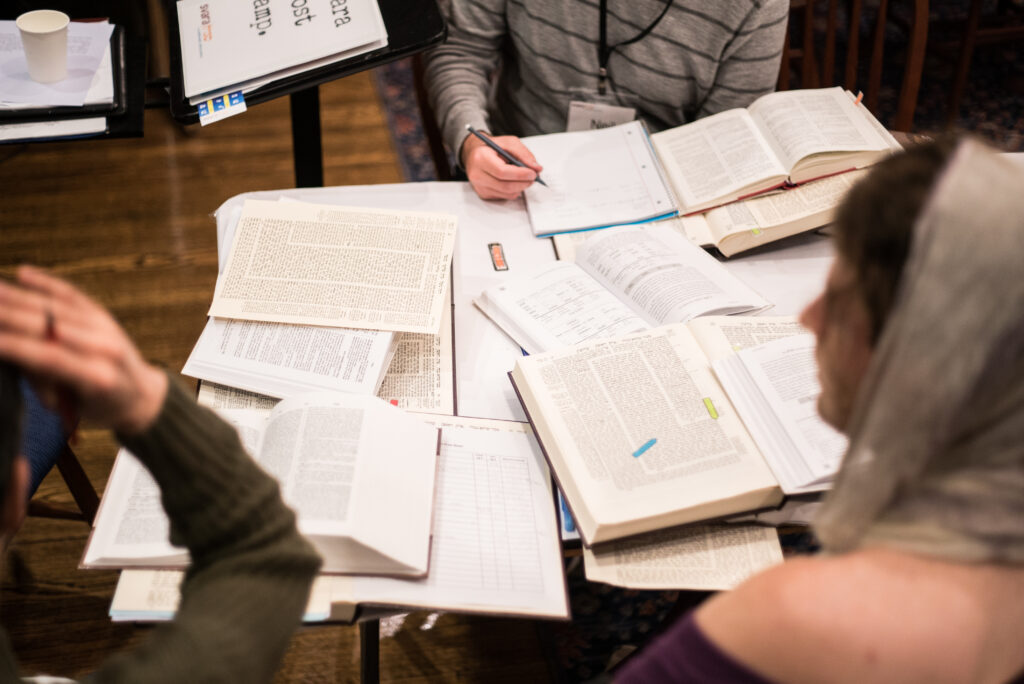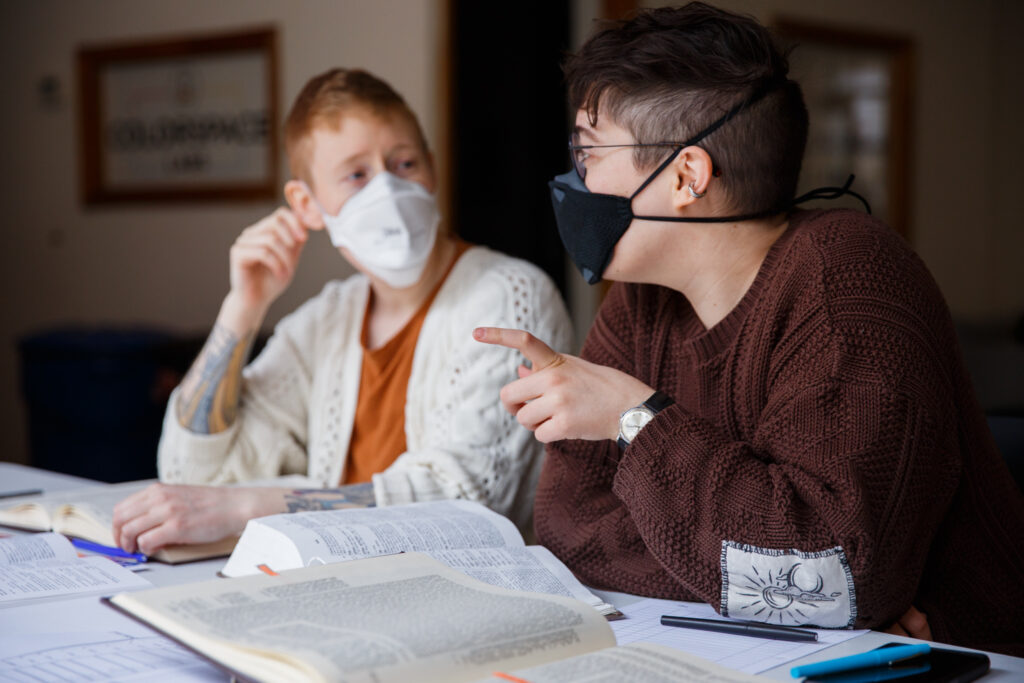I am re-learning how to feel good.
As joy and pain move through my life without ceremony, I—along with so many of y’all—am a scientist of my own experience, constantly learning what it takes to feel good. This week in our Daily Drop-in Mishnah Collective I was electrified by a teaching from our sage Rabbi Hanina ben Dosa, who gave us a jolt of joy, silliness, and pleasure as we explored his teaching in the bet midrash.
In the midst of a chapter in Masechet Avot that has taken us through many pithy teachings of our sages, Rabbi Hanina ben Dosa offers the following declaration (3:10):
הוּא הָיָה אוֹמֵר כָּל שֶׁרוּחַ הַבְּרִיּוֹת נוֹחָה הֵימֶנּוּ, רוּחַ הַמָּקוֹם נוֹחָה הֵימֶנּוּ. וְכָל שֶׁאֵין רוּחַ הַבְּרִיּוֹת נוֹחָה הֵימֶנּוּ, אֵין רוּחַ הַמָּקוֹם נוֹחָה הֵימֶנּוּ.
Rabbi Hanina ben Dosa used to say, “Anyone for whom the spirit of creations is pleased from him, the Spirit of the Place [i.e. G!d] is pleased with him. Anyone for whom the spirit of creations is not pleased from him, the Spirit of Place [i.e. G!d] is not pleased from him.
Anyone who causes pleasure to created beings, says Rabbi Hanina ben Dosa, brings that same pleasure to G!d. This teaching is worded with such ambiguity, with syntactical twists and turns that make space for deep exploration and thick inside/outside readings. (Perhaps it’s a little “meta,” but when we learned this text in the Mishnah Collective, it was in the moments of ambiguity and openness that I felt the most joy with y’all!).
The word for “pleasing” here is נוֹחָה, from the root נוּחַ, which means “to rest,” “to lie,” “to be at ease,” “to be satisfaction,” and “to be pleased.” Rabbi Hanina’s teaching speaks of a deep, restful pleasure, one that brings a sense of satisfaction and spaciousness. He teaches us about the power of pleasure and joy, claiming that the magnification and increasing of pleasure in our world is a source of connection to G!d. The syntax in this mishnah is complex, but the message is clear: that which pleases the created world is pleasing to G!d.
This text is a powerful declaration that when we create pleasure for the things around us, we are creating pleasure for G!d. Rav Ovadia ben Avraham of Bartenura (1470-1594, often referred to as “Bartenura”) interprets this statement as, “[About] anyone who is beloved below, it is certain that he is beloved above.” When we create goodness in the world around us, he explains, the goodness, pleasure, joy reverberates into the Grounding Life Force (G!d).
Rabbi Hanina ben Dosa’s teaching is enhanced by the framework of “pleasure activism,” popularized by adrienne maree brown in her book Pleasure Activism: The Politics of Feeling Good. She defines “pleasure activism” as “…making justice and liberation the most pleasurable experiences we can have. Learning that pleasure gets lost under the weight of oppression, and it is liberatory work to reclaim it.” AMB offers her grounding principles for seeking out pleasure:
pleasure principles:
- you deserve to feel good – physically, mentally, spiritually.
- moderation is key – the idea is not to be in a heady state of ecstasy at all times, but rather to learn how to sense when something is good for you.
- when i am happy, it is good for the world*. folks who are rooted in sensing and seeking pleasure, and bring that energy into their work and relationships, are shining a light for others – there is another path that isn’t full of stress, self-doubt, pain, victimization and suffering. there is a path in which everything is learning, playing, practicing, doing things anew.
- pleasure isn’t related to money, at least not in a positive way. having the resources to buy unlimited amounts of pleasure leads to excess, and excess totally destroys the spiritual experience of pleasure.
- the deepest pleasure comes from riding the line between commitment and detachment – commitment to your process, to what you are doing, paired with detachment from outcomes. this is true in sex, it’s true in work, it’s just true.
Feeling good is a political act, she argues: “Oppression makes us believe that pleasure is not something that we all have equal access to. One of the ways that we start doing the work of reclaiming our full selves — our whole liberated, free selves — is by reclaiming our access to pleasure.” So often we are told that our pleasure is “bad,” that it is antithetical to our justice work, and that we should feel suspicious of feeling good. We must be suspicious of exploitation, yes, and we must also know that our own well-being is good for the world.
Together, adrienne maree brown and Rabbi Hanina ben Dosa remind me why I am invested in the project of feeling good in the first place: the goodness that we nurture for ourselves and each other touches the realm of the sacred. Their teachings, when woven together, are here to help us re-learn how to feel good, to remind us that our pleasure is inherently sacred pleasure and that the joy we create in the world is fundamentally G!d’s joy. They demand that we work in this moment, and always, to support the conditions that will enable others—briyot, all created beings, as our mishnah teaches—alongside ourselves, to be joyful, pleasure-full, and rested.
Rabbi Hanina ben Dosa expands this framework, and locates us within a network of obligation to support the conditions that enable others to be joyful, pleasure-full, and rested.
May we continue to be students of our own pleasure. May we learn and relearn how to support our communities to maximize a world in which goodness, rest, and peace are felt by all.







